#jennifer kelly
Text
Vince Clarke — Songs of Silence (Mute)

Photo by Eugene Richards
Vince Clarke has certainly been in some storied synth bands. He wrote “Just Can’t Get Enough” (and eight other songs) for Depeche Mode’s 1981 debut, Speak & Spell, before leaving that band over creative differences. From there, he headed to Yazoo with Alison Moyet and The Assembly with Eric Radcliffe, and finally to the boppiest, poppiest synth outfit of them all, Erasure, where he played stoically as all manner of frivolity unfolded around him. If you grew up in the 1980s or 1990s and watched any MTV at all, Clarke’s songs are burned into your cortex, and quite possibly unwelcomely, but there’s no denying he was in the thick of a certain kind of dance-y, celebratory, machine-age pop.
The critical thing to understand is that Songs of Silence is nothing at all like that.
This brooding, looming suite of songs was recorded during COVID and reflects Clarke’s sorrow and isolation as friends fell ill. He channels a haunted vibe through modular synth, building each track around a single sustained tone that runs from beginning to end. Lots of things happen around those tones, fluttery arpeggios, slashes of stringed instruments, even, in one instance, a sepulchral folk tune about a “black legged miner.” Still, these tunes are constructed around static, meditational sonic atmospheres that fluctuate in volume and timbre but do not fundamentally change. There’s a sense of the eternal in them, even when as in “Scarper” they twitch into propulsion with percolating electronic rhythms.
Consider the opening “Cathedral” with its crescendoing drones, its altered, inhuman voice sounds, its cavernous sonic space. It unfolds in one long blast of sound after another, a rumbling fog horn, a tremulous string vibration, an unearthly space voyaging organ. You can’t really participate. There’s no melody to hum, no rhythm to tap, and so the best way to experience it is through stillness. You allow it to surround you, to envelop you, to subsume you, like a mystical experience.
These cuts are mostly solitary endeavors, but Clarke invites in a few collaborators to fill out his visions. Caroline Shaw’s pristine soprano arcs through interleaved shimmers of synthesized tones in “Passage,” sounding like the dream of a dream of a dream of an angel. Cellist Reed Hays scrawls a wild, passionate signature over the hushed immanence of “The Lamentations of Jeremiah.” Warmth and anguish flare from his instrument, spilling something baroque and organic into Clarke’s ominous atmospheres.
The disc’s most affecting cut is its oddest. “Blackleg Miner” sets a old labor protest song in a desolate post-industrial landscape. The air hums and trembles around the song’s brutal simplicity, surging to obscure it, at intervals, with sounds like bells shivering in sympathetic vibration. It’s a folk song launched into deep space, hurting through black voids, carrying a faint futile message about what it meant to be human.
Jennifer Kelly
#vince clarke#songs of silence#mute#jennifer kelly#modular synth#albumreview#dusted magazine#depeche mode#erasure#caroline shaw#reed hays
38 notes
·
View notes
Text
Fitch downgrades, market yawns
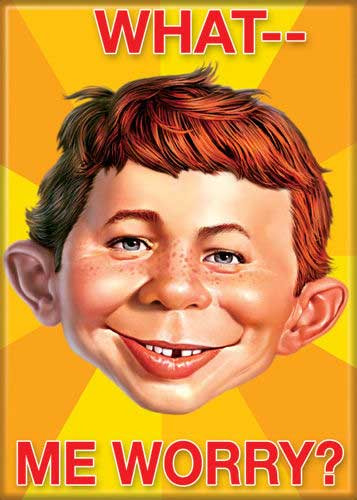
On August 1, Fitch Ratings downgraded its long-term U.S. Treasury rating from AAA to AA+, causing the U.S. to slip from the top-tier of fiscal strength to a lesser rank shared by Canada, Austria, Finland and New Zealand. The U.S. currently holds a slightly below perfect AA+ rating from S&P as well but retains its AAA designation from Moodys.
Fitch cited the United States’ mounting level of government debt—it expects the general government deficit to rise to 6.3% in 2023 from 3.7% in 2022—as well as a steady erosion of governance standards in its decision.
Markets reacted, but not in a cataclysmic way. The Dow lost about 1%, the S&P 500 1.38% and the Nasdaq 2.17% the day after the announcement. Treasury yields barely budged.
The Fitch downgrade is a sign that recent debt ceiling shenanigans have consequences, even if the worst is averted, but still, the timing is a little weird. A deal to fund the government closed two months ago, and while budget negotiations loom for September, nothing has gotten measurably worse.
Indeed, Treasury Secretary Janet Yellen argued that Fitch’s assessment was based on outdated data that failed to reflect recent economic improvement. She stated, “At the end of the day, Fitch's decision does not change what all of us already know: that Treasury securities remain the world's pre-eminent safe and liquid asset, and that the American economy is fundamentally strong.”
Market observers largely dismissed Fitch’s movement. “Why now?” Queens College president and Allianz advisor Mohamed El-Erian asked Yahoo Finance. “When you look at the reason, you scratch your head as to the timing of this.”
Goldman Sachs acknowledged that the U.S. faces long-term governance and fiscal challenges but argued that there was nothing new here and that the downgrade wouldn’t likely affect financial markets. Blackrock, likewise, said in a statement that, “We don’t see this action as a market driver and see no impact on U.S. Treasury market functioning.”
Fixed income titan PIMCO noted that growing deficits are a concern, but that the economy is showing surprising strength. “However, the firm looks for slowing in the second half of 2023—and expects choppier markets ahead. “Fitch’s downgrade is another reminder that risks related to deficit spending and debt sustainability, which tend to lie dormant, can arise and spark concerns. That creates the potential for market surprises and volatility, particularly given the diminished capacity for fiscal and monetary support.” So what’s ahead? Signs point in all directions. Debt levels are rising, but the economy is improving. Polarization persists, but the U.S. government is still basically functioning. These underlying weakness may, at some point, trigger volatility, but for now, markets are eerily unaffected. To quote Mad magazine, “What, me worry?
0 notes
Text
Heather Graham

#heather graham#ana de armas#emily ratajkowski#lindsay lohan#sexy titts#sexy tiddies#lick my ass#celebrity bikini#olivia wilde#sydney sweeney#celebrity crush#anne hathaway#gaming#youtube#kelly reilly#food#fashion#millie bobby brown#basketball#nathalie emmanuel#miley cyrus#leni klum#lucy lawless#jennifer lawrence#landscape#emma stone#scarlet johansson#stolen
2K notes
·
View notes
Text
personality test: who are your icons on your streaming service profiles?
#i've got esme squalor for netflix + susie myerson with plunger for prime video + jennifer coolidge in white lotus for hbo max#+ kelly kapoor for peacock#and belle for disney+#dollsome's deep thoughts
1K notes
·
View notes
Text
You would think that after all that Brie Larson, Jennifer Lawrence, Daisy Ridley, Kelly Marie Tran and, most recently, Halle Bailey endured, we would’ve learned our lesson. First, you said Rachel wasn’t Latina / Latina enough; then you said she was Latina and therefore she can’t be Snow White.
Y’all spent years criticizing the princesses, – namely Snow White – calling them “weak” and “passive”, saying that young girls shouldn’t aspire to be them and shaming those people that did. Disney heard you and decided “Fine, we’ll give her a more modern update,” and tasked Rachel with playing her.
Now y’all wanna do a complete 180 and want to claim that Snow White is “sacrilege” and was always a beautiful role model. You’re calling on Rachel to quit, calling her ungrateful for her role (nevermind that these photos exists), saying she “ruined the movie” for you, and hoping the movie fails based on an out-of-context 5-second Tiktok clip from a year old video. Disney creatives are the ones who made the decision to portray Snow White this way; Rachel is merely her vessel. What is wrong with y’all?!
Not to mention that y’all have the Audacity™️ to compare her handling of this whole thing to Halle Bailey’s handling of the racist campaigns against her. Rachel doesn’t it to owe to you to handle all of this with grace, by staying quiet and putting on a brave face. This constant barrage of hate and over analyzation of everything she says, does, and thinks is clearly taking a toll on her. (Also, Halle has signaled her support for Rachel, so just try pitting these two against each other again.)
Y’all need to realize that you are bullying a 22 year old for sport and have no shame for it. It’s sickening. I am exhausted from watching female actresses get torn apart on social media, at this point for just existing.
We just had “Barbie” come out – a movie that famously talks about the difficulties of being a woman and how no matter what you do, no matter how hard you work or how hard you try, nothing you do will be ever be enough. Everyone missed the message. I’m disappointed, but shit am I not surprised.
#rachel zegler#brie larson#jennifer lawrence#daisy ridley#kelly marie tran#halle bailey#like… y’all are hating a 22 year old…#… because it’s fun?#and y’all not even ashamed#it’s sickening#go touch some fucking grass#it’s disappointing when men hate women#but 1000x worse watching women hate other women#can we PLEASE try and do better going forward
509 notes
·
View notes
Text


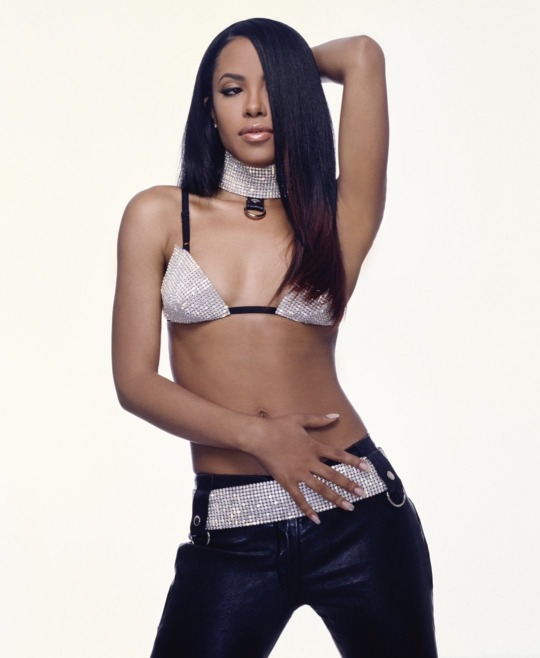
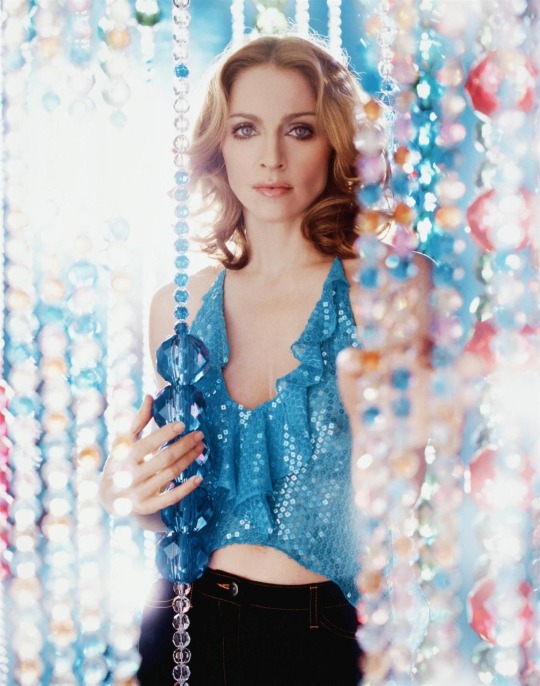
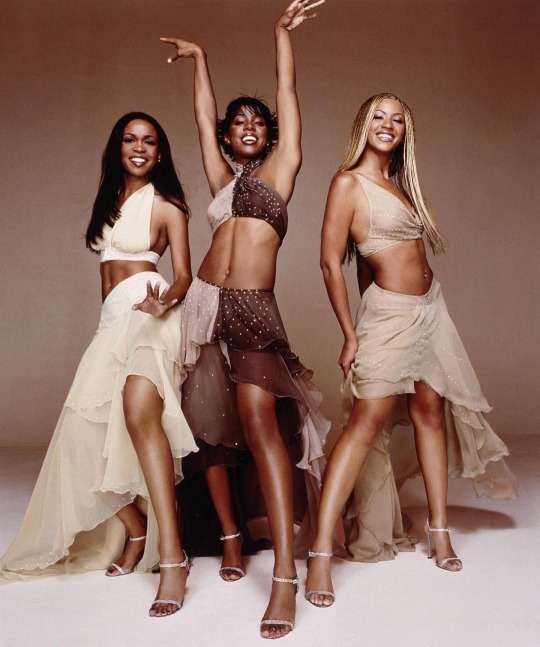
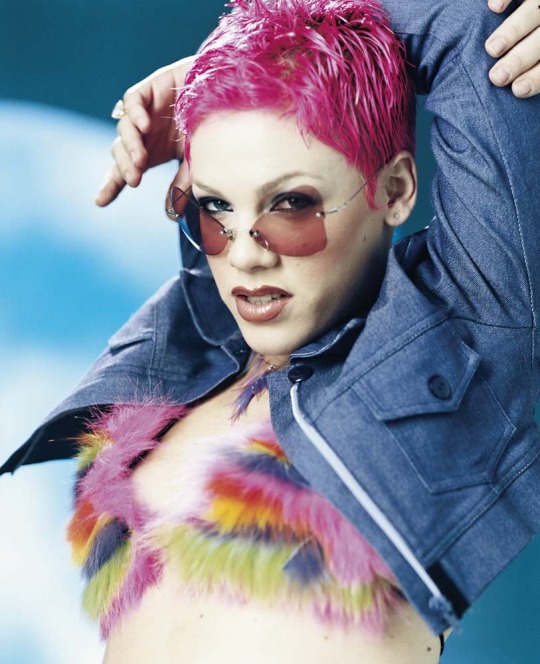
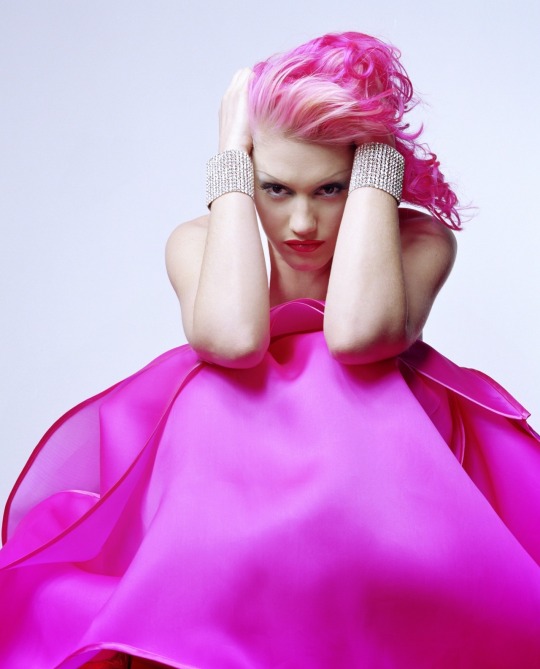



THE YEAR IS 2000
#christina aguilera#britney spears#aaliyah#madonna#pink#p!nk#gwen stefani#no doubt#jennifer lopez#mya#mandy moore#destiny’s child#beyonce#kelly rowland#michelle williams#y2k aesthetic#y2kcore#y2k fashion#y2k#y2k nostalgia#2000s music#2000s#2000s pop#2000#2000s pop culture#women in music
366 notes
·
View notes
Text
SO out of pocket how Human Resources swings between "haha severed penis" to The most Heartbreaking, Gut-Wrenching Realities known to humankind
#human resources#nick kroll#emmy fairfax#pete doheny#rochelle hillhurst#lionel#shame wizard#logic rock#lovebug#hormone monstress#hormone monsters#human resources netflix#big mouth#jennifer flackett#kelly galuska#andrew goldberg#mark levin#emmy human resources#my post
338 notes
·
View notes
Text
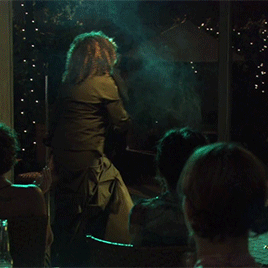
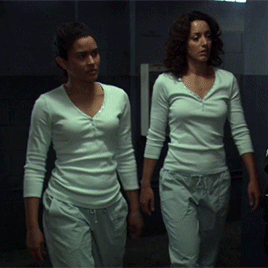
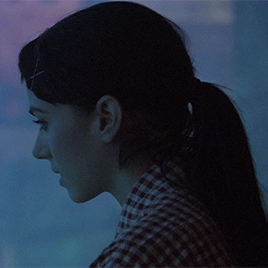
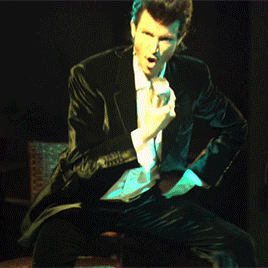

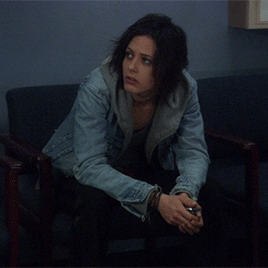
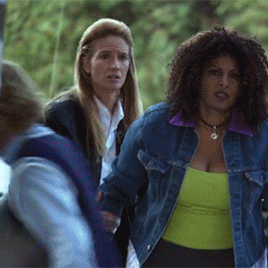


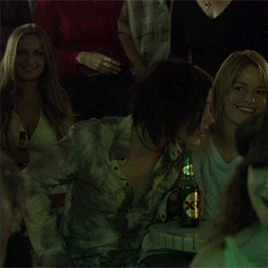
The L Word: Lookbook
↳ 1.12, Locked Up
#the l word#jennifer schecter#mia kirshner#bette porter#jennifer beals#leisha hailey#kate moennig#shane mccutcheon#alice pieszecki#tina kennard#laurel holloman#marina ferrer#karina lombard#kit porter#pam grier#kelly lynch#ivan aycock#Candace Jewell#Ion Overman#OK IS THAT ALL THE FUCKING NAMES#2 really nice outfits in this are jennys one at the aquarium with the cross hairpins and#the secondone is one alice wore at the bar but there was not a good shot long enough of it so possible alice solo post coming up#also jennys really cute date outfit#i kind of like the prison garb for how funny it is and also that is probably one of my favourite scenes in the show just ugh everything#also i really like kit and tinas all blakc work outfit situations except tina is wearing a skirt for some reason in it like a pencil skirt#which is just not that nice (bette powersuit is not giffed but did exist) but kits ruffled long skirt i love it#also these are downloaded in shaky quality which is why the ivan firsy gif looks so bad but i did want itin there#one of the very few instances of actual play with gender in the show LOL and the scene u see some butches and such#count your blessings...#tlwlb
162 notes
·
View notes
Text
Listening Post: Kim Gordon

Kim Gordon has long been one of rock’s female icons, one of a tiny handful of women to get much play in Michael Azzerad’s underground-defining Our Band Could Be Your Life and a mainstay in the noise-rock monolith Sonic Youth. It’s hard to imagine that quintessential dude rock band without Gordon in front, dwarfed by her bass or spitting tranced out, pissed off verses over the storm of feedback.
Yet Gordon’s trajectory has been, if anything, even more fascinating since Sonic Youth’s demise in 2011. A visual artist first — she studied art at the Otis College of Art and Design before joining the band — she continues to paint and sculpt and create. She’s had solo art shows at established galleries in London and New York, most recently at the 303 Gallery in New York City. A veteran of indie films including Gus van Zant’s Last Days and Todd Haynes I’m Not There, she has also continued to act sporadically, appearing in the HBO series Girls and on an episode of Portlandia. Her memoir, Girl in a Band, came out in 2015.
But Gordon has remained surprisingly entrenched in indie music over the last decade. Many critics, including a few at Dusted, consider her Body Head, collaboration with Bill Nace the best of the post-Sonic Youth musical projects. The ensemble has now produced two EPs and three full-lengths. Gordon has also released two solo albums, which push her iconic voice into noisier, more hip hop influenced directions. We’re centering this listening post around The Collective, Gordon’s second and more recent solo effort, which comes out on Matador on March 8th, but we’ll likely also be talking about her other projects as well.
Intro by Jennifer Kelly
Jennifer Kelly: I missed No Home in 2019, so I was somewhat surprised by The Collective’s abrasive, beat-driven sound though I guess you could make connections to Sonic Youth’s Cypress Hill collaboration?
youtube
The more I listen to it, though, the more it makes sense to me. I’ve always liked the way Gordon plays with gender stereotypes, and “I’m a Man” certainly follows that trajectory. What are you guys hearing in The Collective?
Jonathan Shaw: I have only listened through the entire record once, but I am also struck by its intensities. Sort of silly to be surprised by that, given so many of the places she has taken us in the past: noisy, dangerous, dark. But there's an undercurrent of violence to these sounds that couples onto the more confrontational invocations and dramatizations of sex. It's a strong set of gestures. I like the record quite a bit.
Bill Meyer: I'm one of those who hold Body/Head to be the best effort of the post-Sonic Youth projects, but I'll also say that it's very much a band that creates a context for Gordon to do something great, not a solo effort. I was not so taken with No Home, which I played halfway through once upon its release and did not return to until we agreed to have this discussion. I've played both albums through once now, and my first impression is that No Home feels scattered in a classic post-band-breakup project fashion — “let's do a bit of this and that and see what sticks.” The Collective feels much more cohesive sonically, in a purposeful, “I'm going to do THIS” kind of way.
Jonathan Shaw: RE Jennifer's comment about “I'm a Man”: Agreed. The sonics are very noise-adjacent, reminding me of what the Body has been up to lately, or deeper underground acts like 8 Hour Animal or Kontravoid's less dancy stuff. Those acts skew masculine (though the Body has taken pains recently to problematize the semiotics of those photos of them with lots of guns and big dogs...). Gordon's voice and lyrics make things so much more explicit without ever tipping over into the didactic. And somehow her energy is in tune with the abrasive textures of the music, but still activates an ironic distance from it. In the next song, “Trophies,” I love it when she asks, “Will you go bowling with me?” The sexed-up antics that follow are simultaneously compelling and sort of funny. Rarely has bowling felt so eroticized.
Jennifer Kelly: I got interested in the beats and did a YouTube dive on some of the other music that Justin Raisen has been involved with. He's in an interesting place, working for hip hop artists (Lil Yachty, Drake), pop stars (Charli XCX) and punk or at least punk adjacent artists (Yeah Yeah Yeahs, Viagra Boys), but nothing I've found is as raw and walloping as these cuts.
“The Candy House” is apparently inspired by Jennifer Egan's The Candy House, which is about a technology that enables people to share memories... Gordon is pretty interested in phones and communications tech and how that's changing art and human interaction.
Andrew Forell: My immediate reaction to the beats was oh, The Bug and JK Flesh, in particular the MachineEPs by the former and Sewer Bait by the latter. Unsurprisingly, as Jonathan says, she sounds right at home within that kind of dirty noise but is never subsumed by it
Jennifer Kelly: I don't have a deep reference pool in electronics, but it reminded me of Shackleton and some of the first wave dub steppers. Also, a certain kind of late 1990s/early aughts underground hip hop like Cannibal Ox and Dalek.
Bryon Hayes: Yeah, I hear some Dalek in there, too. Also, the first Death Grips mixtape, Ex-Military.
It's funny, I saw the track title “I'm a Man,” and my mind immediately went to Bo Diddley for some reason, I should have known that Kim would flip the script, and do it in such a humorous way. I love how she sends up both the macho country-lovin’ bros and the sensitive metrosexual guys. It's brilliant!
This has me thinking about “Kool Thing”, and how Chuck D acts as the ‘hype man’ to Kim Gordon in that song. I'm pretty sure that was unusual for hip hop at the time. Kim's got a long history of messing with gender stereotypes.
youtube
Bill Meyer: Gordon did a couple videos for this record, and she starred her daughter Coco in both of them. The one for “I'm A Man” teases out elements of gender fluidity, how that might be expressed through clothing, and different kinds of watching. I found the video for “Bye Bye” more interesting. All the merchandise that's listed in the video turns out to be a survival kit, one that I imagine that Gordon would know that she has to have to get by. The protagonist of the video doesn't know that, and their unspoken moment in a car before Coco runs again was poignant in a way that I don't associate with her work. And of messing with hip hop!
youtube
Tim Clarke: “Bye Bye” feels like a companion to The Fall’s “Dr Buck’s Letter.”
youtube
Bill Meyer: From The Unutterable? I'll have to a-b them.
Tim Clarke: That’s the one.
Jonathan Shaw: All of these comments make me think of the record’s title, and the repeated line in “The Candy House”: “I want to join the collective.” Which one? The phone on the record’s cover nods toward our various digital collectives — spaces for communication and expression, and spaces for commerce, all of which seem to be harder and harder to tell apart. A candy house, indeed. Why is it pink? Does she have a feminine collective in mind? A feminine collective unconscious? The various voices and lyric modes on the record suggest that's a possibility. For certain women, and for certain men working hard to understand women, Gordon has been a key member of that collective for decades.
Jennifer Kelly: The title is also the title of a painting from her last show in New York.

The holes are cell phone sized.
You can read about the show here, but here's a representative quote: “The iPhone promises freedom, and control over communication,” she says. “It’s an outlet of self-expression, and an escape and a distraction from the bigger picture of what’s going on in the world. It’s also useful for making paintings.”
Gordon is a woman, and a woman over 70 at that — by any measure an underrepresented perspective in popular culture. However, I’d caution against reading The Collective solely as a feminist statement. “I'm a Man,” for instance, is told from the perspective of an incel male, an act of storytelling and empathy not propaganda. My sense is that Gordon is pretty sick of being asked, “What's it like to be a girl in a band?” (per “Sacred Trickster”) and would like, maybe, to be considered as an artist.
It's partly a generational thing. I'm a little younger than she is, but we both grew up in the patriarchy and mostly encountered gender as an external restriction.
As an aside, one of my proudest moments was when Lucas Jensen interviewed me about what it was like to be a freelance music writer, anonymously, and Robert Christgau wrote an elaborate critique of the piece that absolutely assumed I was a guy. If you're not on a date or getting married or booking reproductive care, whose business is it what gender you are?
There, that's a can of worms, isn't it?
Jonathan Shaw: Feminine isn't feminist. I haven't listened nearly closely enough to the record to hazard an opinion about that. More important, it seems to me the masculine must be in the feminine unconsciousness, and the other way around, too. Precisely because femininity has been used as a political weapon, it needs imagining in artistic spaces. Guess I also think those terms more discursively than otherwise: there are male authors who have demonstrated enormous facility with representing femininity. James, Joyce, Kleist, and so on. Gordon has always spoken and sung in ways that transcend a second-wave sort of feminine essence. “Shaking Hell,” “PCH,” the way she sings “I Wanna Be Your Dog.”
youtube
Jennifer Kelly: Sure, she has always been shape-shifter artistically.
The lyrics are super interesting, but almost obliterated by noise. I’m seeing a connection to our hyperconnected digital society where everything is said but it’s hard to listen and focus.
Bill Meyer: Concrete guy that I am, I’ve found myself wishing I had a lyric sheet even though her voice is typically the loudest instrument in the mix.
Andrew Forell: Yes, that sense of being subsumed in the white noise of (dis)information and opinion feels like the utopian ideal of democratizing access has become a cause and conduit of alienation in which the notion of authentic voices has been rendered moot. It feels integral to the album as a metaphor
Christian Carey: How much of the blurring of vocals (good lyrics — mind you) might involve Kim’s personal biography, I wonder? From her memoirs, we know how much she wished for a deflection of a number of things, most having to do with Thurston and the disbandment of SY.
Thurston was interviewed recently and said that he felt SY would regroup and be able to be professional about things. He remarked that it better be soon: SY at eighty wouldn’t be a good look!
Andrew Forell: And therein lies something essential about why that could never happen
Ian Mathers: I know I’m far in the minority here (and elsewhere) because I’ve just never found Sonic Youth that compelling, despite several attempts over the years to give them another chance. And for specifically finding Thurston Moore to be an annoying vocal presence (long before I knew anything about his personal life, for what it's worth). So, I’m in no hurry to see them reunite, although I do think it would be both funny and good if everyone except Moore got back together.
Having not kept up with Gordon much post-SY beyond reading and enjoying her book, I wasn’t sure what to expect from this record. After a couple of listens, I’m almost surprised how much I like it. Even though I’m lukewarm on SY’s music, she’s always been a commanding vocal presence and lyricist and that hasn’t changed here (I can echo all the praise for “I’m a Man,” and also “I was supposed to save you/but you got a job” is so bathetically funny) and I like the noisier, thornier backing she has here. I also think the parts where the record gets a bit more sparse (“Shelf Warmer”) or diffuse (“Psychic Orgasm”) still work. I've enjoyed seeing all the comparisons here, none of which I thought of myself and all of which makes sense to me. But the record that popped into my head as I listened was Dead Rider’s Chills on Glass. Similar beat focus, “thick”/distorted/noisy/smeared production, declamatory vocals. I like that record a lot, so it's not too surprising I'm digging this one.
youtube
Jennifer Kelly: I loved Sonic Youth but have zero appetite for the kind of nostalgia trip, just the hits reunion tour that getting back together would entail.
Jonathan Shaw: Yeah, no thanks to that.
RE Christian's comment: Not sure I see deflection so much as the impossibility of integration. We are all many, many selves, always have been. Digital communications interfaces and social media have just lifted it to another level of experience. Gordon sez, “I don't miss my mind.” Not so much a question of missing it in the emotional/longing sense, more so acknowledging that phrases like “my mind” have always been meaningless. Now we partition experience and identity into all of these different places, and we sign those pieces of ourselves over, to Zuck and the algorithms. We know it. We do it anyways, because it's the candy house, full of sweets and pleasures that aren't so good for us, but are really hard to resist. “Come on, sweets, take my hand...”
Bill Meyer: I would not mind hearing all of those SY songs I like again, can’t lie, although I don’t think that I’d spend Love Earth Tour prices to hear them. But given the water that has passed under the bridge personally, and the length of time since anyone in the band has collaborated creatively (as opposed to managing the ongoing business of Sonic Youth, which seems to be going pretty well), a SY reunion could only be a professionally presented piece of entertainment made by people who have agreed to put aside their personal differences and pause their artistic advancement in order to make some coin. There may be good reasons to prioritize finances. Maybe Thurston and/or Kim wants to make sure that they don’t show up on Coco’s front door, demanding to move their record or art collection into her basement, in their dotage. And Lee’s a man in his late 60s with progeny who are of an age to likely have substantial student loan debt. But The Community is just the kind of thing they’d have to pause. It feels like the work of someone who is still curious, questioning, commenting. It's not just trying to do the right commercial thing.
Justin Cober-Lake: I’m finding this one to be a sort of statement album. I’d stop short of calling it a concept album, but there seems to be a thematic center. I think a key element of the album is the way that it looks for... if not signal and noise, at least a sense of order and comprehensibility in a chaotic world. Gordon isn’t even passing judgment on the world — phones are bad, phones are good, phones make art, etc. But there’s a sense that our world is increasingly brutal, and we hear that not just in the guitars, but in the beats, and the production. “BYE BYE” really introduces the concept. Gordon’s leaving (and we can imagine this is autobiographical), but she’s organizing everything she needs for a new life. “Cigarettes for Keller” is a heartbreaking line, but she moves on, everything that makes up a life neatly ordered next to each other, iBook and medications in the same line. It reminds me of a Hemingway character locking into the moment to find some semblance of control in the chaos.
Getting back to gender, there’s a funny line at the end: one of the last things she packs is a vibrator. I'm not sure if we're to read this as a joke, a comment on the necessity of sexuality in a life full of transitory moments, as a foreshadowing of the concepts we’ve discussed, or something else. The next item (if it’s something different) is a teaser, which could be a hair care product or something sexual (playing off — or with — the vibrator). Everything's called into question: the seriousness of the track, the gender/sexuality ideas, what really matters in life. Modern gadgets, life-sustaining medicines, and sex toys all get equal rank. That tension really adds force to the song.
Coming out of “BYE BYE,” it's easy to see a disordered world that sounds extremely noisy, but still has elements we can comprehend within the noise. I don’t want to read the album reductively and I don't think it's all about this idea, but it's something that, early on in my listening, I find to be a compelling aspect of it.
youtube
#dusted magazine#listeningpost#kim gordon#the collective#jennifer kelly#jonathan shaw#bill meyer#andrew forell#bryon hayes#tim clarke#christian carey#ian mathers#justin cober-lake
20 notes
·
View notes
Text
The yield curve is upside down What does that mean for the economy?

In normal, boring, typical economies, investors demand higher yield when they lend out money for longer periods. There’s just more risk on a 30-year bond than a 1-year note. As a result, the typical yield curve slants up as it goes to the right. The longer the bond’s maturity, the more it pays in interest.
This is not a normal, boring, typical economy.
Since late spring, yields on short-term U.S. Treasuries have been higher than those on long-term Treasuries. For instance, right now, on the heels of a better than expected inflation report, the two-year U.S. Treasury yields 4.73%. The 10-year, by contrast, is yielding 3.86%, almost a full percentage point higher.
The last time the yield curve was this inverted was the early 1980s—on the brink of prolonged recession.
So what’s going on? The yield curve typically inverts when fixed income investors expect future economic conditions to be worse than they are now. If the economy deteriorates, the thinking goes, the Fed will have to reduce interest rates to promote growth. The market then prices long-term bonds to reflect this pessimistic scenario.
An inverted yield curve has preceded all five of the last recessions since 1980. Does that mean we’re headed into a slowdown?
Not so fast, say some economists. Nobel Prize winner Paul Krugman, for instance, says that an inverted curve reflects what market participants think about the economy—not necessarily what is happening. In an op-ed on Tuesday, he explained:
“But the meaning of an inverted yield curve is widely misunderstood. It doesn’t cause a recession. It is instead an implicit prediction about future Fed policy — namely, that the Fed will cut rates sharply in the future, presumably to fight a deepening recession. So the inverted yield curve wasn’t really independent evidence, just a market reflection of the same ‘recession is coming’ consensus you were hearing on cable TV.”
Krugman notes that everyone—from central bankers to Wall Street strategists—has been predicting a recession since the Fed started tightening in 2022, but that the slowdown has stubbornly refused to arrive. Does that mean it won’t ever? Probably not. But it may not be on the typical one-to-five timeline following an inverted curve.
The four most frightening words in finance are famously “It’s different this time,” but it may actually be a little different this time around. There are no signs that the curve is flipping to normal yet, or that we’re in even the earliest stages of recession. For now, investors can earn more on short-term notes than long ones—a boost for risk-averse, income oriented people.
0 notes
Text

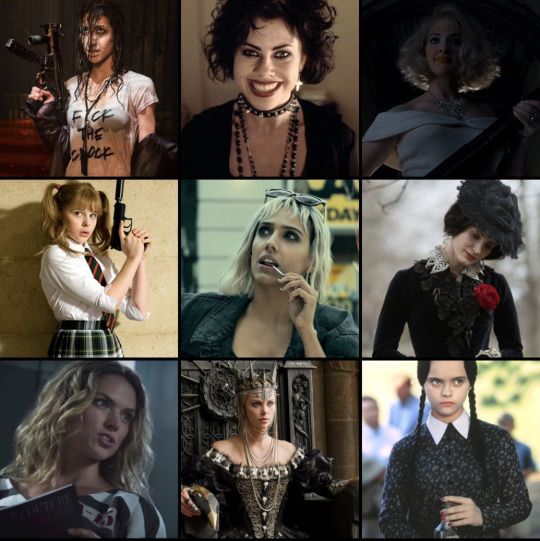
Unhinged ladies <3
From left to right: Nadia Vulvokov - Russian Doll, Grace LaDomas - Ready Or Not, Kimiko Miyashiro - The Boys, Bart Curlish - Dirk Gently’s Holistic Detective Agency, Nadja of Antipaxos - What We Do In The Shadows, Nix - Guns Akimbo, Harley Quinn - Birds of Prey, Crystal May Creasey - The Hunt, Jennifer Check - Jennifer’s Body, Kelly Maxwell - Ash vs Evil Dead, Nancy Downs - The Craft, Debbie Jellinsky- Addams Family Values, Mindy McCready - Kickass, Lila Pitts - The Umbrella Academy, Lucille Thorne - Crimson Peak, Barbara Kean - Gotham, Ravenna - Snow White and the Huntsman, Wednesday Addams - The Addams Family
#nadia vulvokov#russian doll#grace le domas#ready or not#kimiko miyashiro#the boys#bart curlish#dirk gentlys holistic detective agency#nadja of antipaxos#what we do in the shadows#guns akimbo#harley quinn#birds of prey#the hunt#jennifer check#jennifer’s body#kelly maxwell#ash vs evil dead#nancy downs#the craft#debbie jellinsky#mindy mccready#kickass#lila pitts#the umbrella academy#lucille sharpe#crimson peak#barbara kean#Gotham#wednesday addams
2K notes
·
View notes
Text
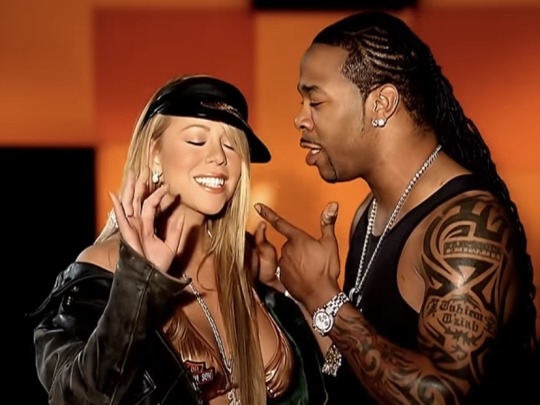
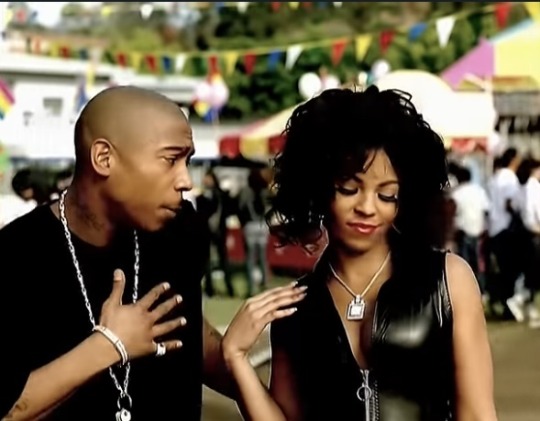
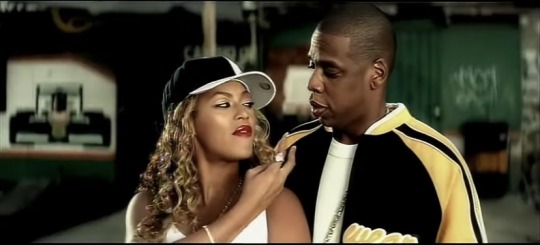
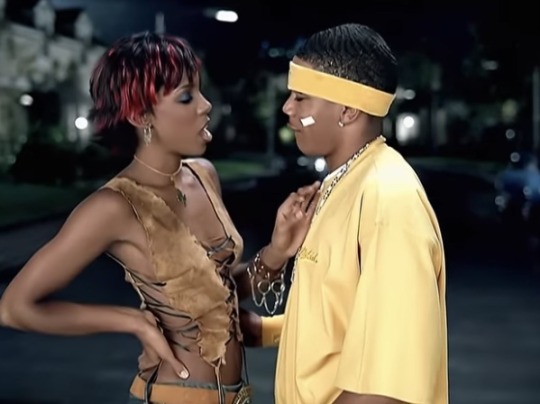

#mariah carey#busta rhymes#ja rule#ashanti#beyoncé#jay z#Nelly#kelly rowland#ll cool j#jennifer lopez
396 notes
·
View notes
Text
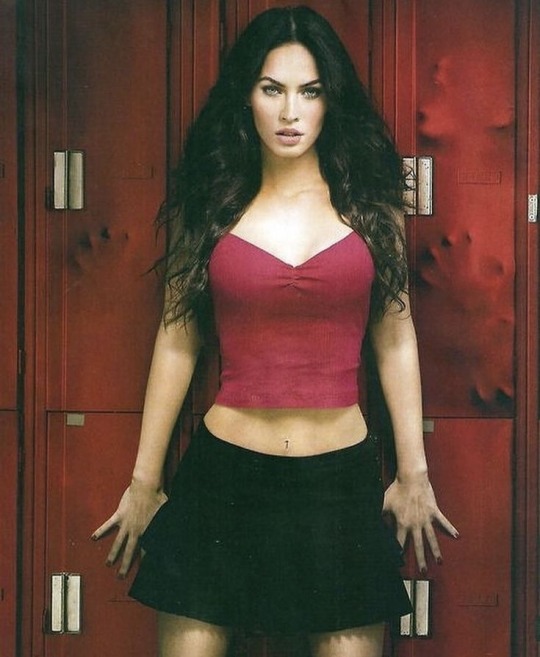
#meganfoxedit#megan fox#machine gun kelly#jennifer check#jennifer's body#vampire moodboard#vampire aesthetic#beautiful model#celebs#celebrity#celebrities#girly tumblr#just girly posts#girly#girly girl#beautiful#gorgeous
90 notes
·
View notes
Text
Chucky predictions
SPOILER WARNING FOR CHUCKY S3E5!
I wanna make Chucky theories so bad, but I can't think of any! This show is so crazy that I can't even predict or speculate on what could happen next. There are some people teasing on twitter though and all they've been doing is making me even more hyped for how this season is going to end. So here are some of my predictions based on everything that's been teased so far.
Jake will enter the spirit realm:

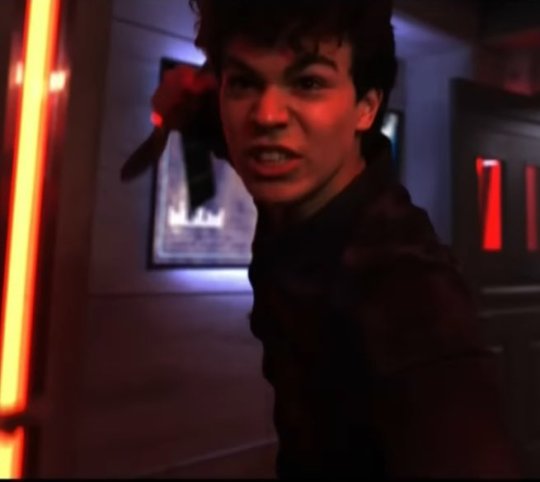
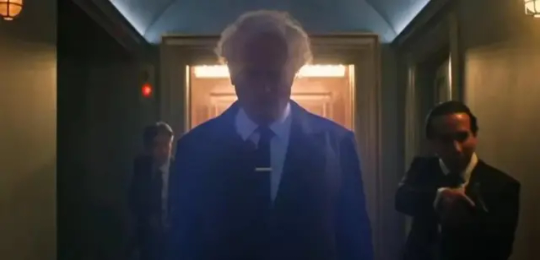
I don't think he's necessarily going to die, but he's so fixated on ending Chucky for good to the point where he refused to run away from it all like Devon suggested. And we've heard the doctor, the only way you get to the spirit realm is by dying, but what if you didn't need to die? I believe that thanks to all the supernatural shit occurring there, the White House will become some sort of passage between the two realms. Jake will cross it to try and destroy Charles' soul, but if he will fail or succeed is still debatable...
Caroline helps Chucky get young again:
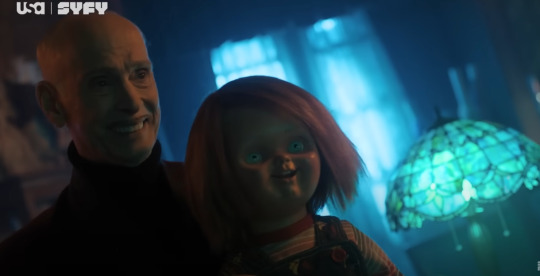
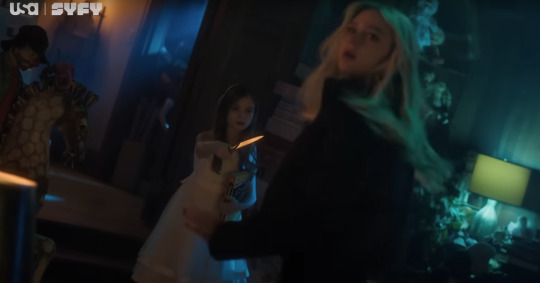
If Jake fails in permanently killing Chucky, Caroline will come to the rescue. We know she'll be back, but what role will she play in this mess? When she'll return, all hell already would've broken loose and she'll just make it worse. Her sudden entrance at the White House will cause quite the emotional reunion for Lexi and her. Yet, Caroline didn't come alone. Armed with the Voodoo for Dummies book, sure, but she brought another friend, who's none other than the Good Guy Doll creator played by John Waters. He came with a new doll, a new vessel for Charles and with Caroline's newfound knowledge of Voodooism, she'll get Damaballa's blessings and give Chucky a new body, a new chance to not disappoint the almighty Iowa and if he plays his cards right, he might even become forever young.
Grant will survive:
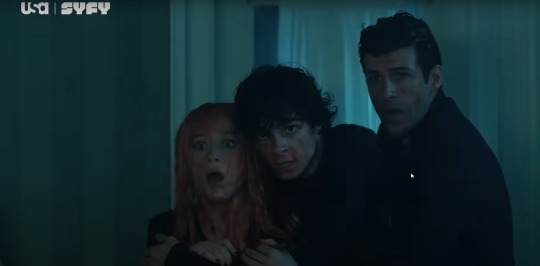
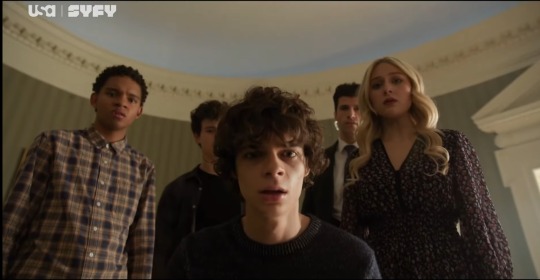
I don't have any evidence to back this up, I just like him and think it's unfair that Lexy always has to say goodbye to someone she loves each season and I just don't want it to happen again. From a psychology standpoint it just desensitized her and would lead to her not getting attached to anyone else besides Jake & Devon next season, in fear of someone else always having to die because of her. And from a writing perspective it just gets repetitive, predictable and boring. So please Don Mancini don't kill him, also I love Jackson Kelly.
The past will haunt everyone:
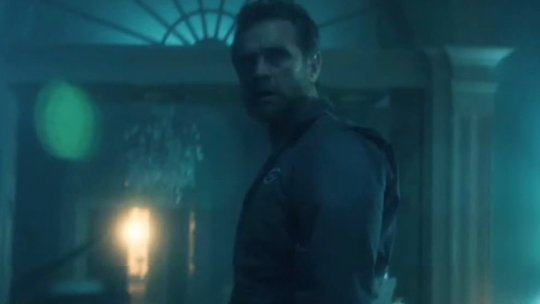
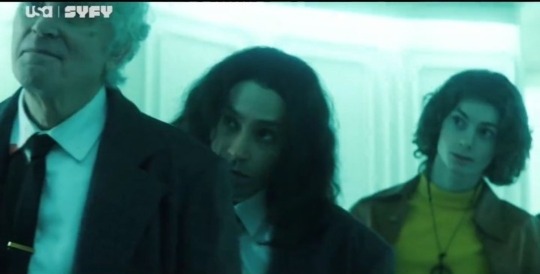
Charles Lee Ray isn't the only ghost the Terror Trio will have to deal with in the newly supernatural possessed White House. We've seen the past of the Collins family haunt them time and time again, we've seen Henry talk about ghosts and fearing what they told him almost every single episode. Why would that stop at Joseph or Charles? Wouldn't it be horrible for our trio to be faced with the lives they lost thanks to a doll they couldn't stop? How would Jake react upon seeing his father again, disappointed at him for being gay. And Lexy, the poor girl, facing Junior, the boy she watched die, trying to save her... Not making at least one ghost of the past come back would be a wasted opportunity.
Tiffany will survive, but Jennifer's body might not:
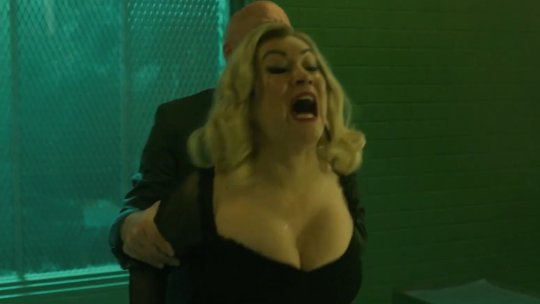
Tiffany's possible death has been brought up in every interview Jennifer Tilly made following the comeback of Chucky season 3. At this point it even became a ‘will they, won't they’ situation. Does Mancini really have the guts to kill off a cult favorite character and actress he loves so much? Or will we just say goodbye to seeing Tilly on screen and welcome only her voice? I mean the trailer kinda made it clear for me that this isn't the end of Tiffany's story, but maybe that of Jennifer's body.
#chucky#charles lee ray#chucky series#chucky season 3#chucky syfy#lexy cross#jake wheeler#devon evans#childs play#tiffany#tiffany valentine#jennifer tilly#devon sawa#brad dourif#tyler bass#grant collins#jackson Kelly#alyvia alyn lind#zackary arthur#bjorgvin arnarson#don mancini
25 notes
·
View notes